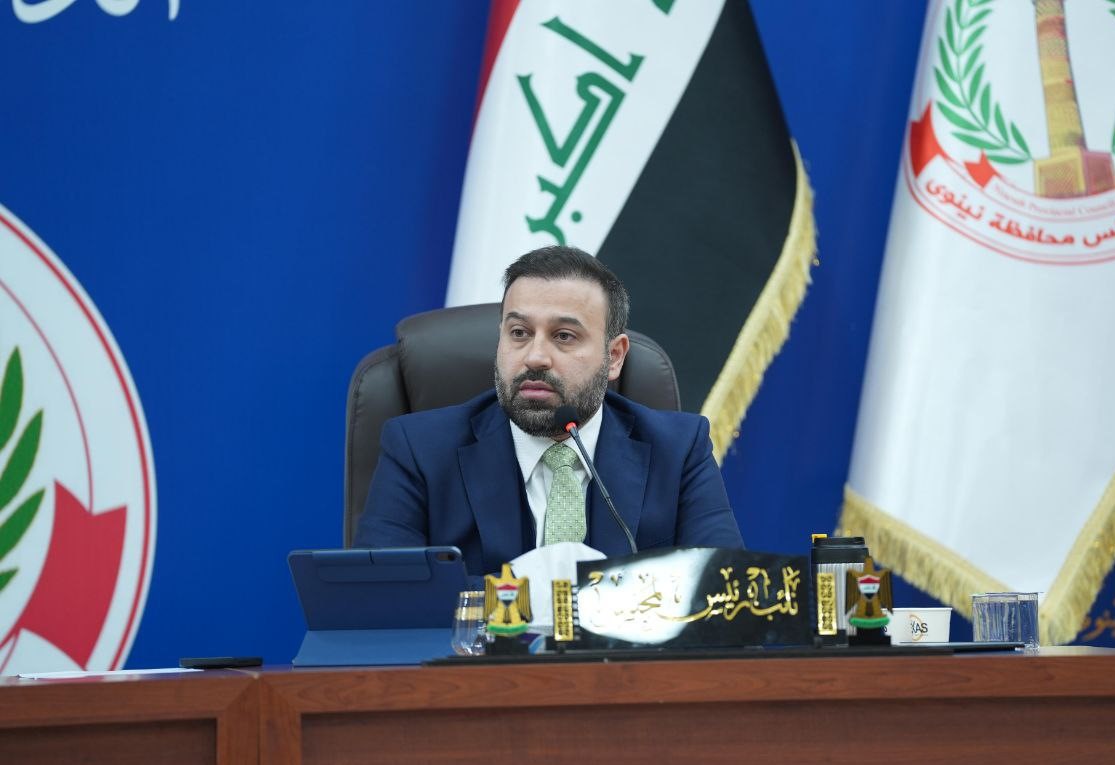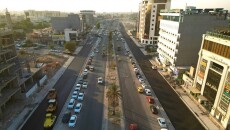The head of the Finance Committee in the Nineveh Council states that the province is awaiting the House of Representatives' vote on upcoming legislation to finalize the budget's preparation and distribute it equitably to regions based on population statistics.
He emphasizes that the budget is divided equally between public benefit and cities.
According to follow-ups from KirkukNow, multiple budgets have been submitted to the Nineveh Council, including the petrodollar budget and the regional development budget, with the Reconstruction Fund for Areas Affected by Terrorist Operations expected to be funded soon.
The Nineveh Provincial Council approved the petrodollar budget on November 24, amounting to 1.1 billion Iraqi dinars IQD (USD730,000), as reported by council member Mohammed Jassim Kakai to KirkukNow.
According to the law of provinces not organized in a region No. 21 of 2008, as amended, there is a petrodollar budget within the financial resources of some provinces, which consists of USD5 per barrel (pb) of crude oil produced in the province, in addition to 5 US/pb refined in the province's refineries, and $5 for every (150) cubic meters of natural gas production in the province.
The head of the Finance Committee in the Nineveh Council, Abdullah Atheel al-Nujaifi, in an interview with KirkukNow correspondent, highlighted the importance of completing strategic projects in Nineveh, particularly infrastructure, hospitals, and school buildings.
He stressed that the budget is crucial for project implementation and expressed the council's eagerness to prepare it promptly pending the Iraqi Council of Representatives' vote.
Al-Nujaifi said during his interview with Kirkuk Now correspondent, that "the budget is the main nerve for implementing projects in the province, and we seek to prepare it as soon as possible, but we are waiting for the vote by the Iraqi Council of Representatives."
"The budget is distributed by the Ministry of Planning, where 50% of it goes to the public benefit, and the other 50% to the regions and is distributed according to population statistics and needs."
On December 22, Prime Minister Mohammed Shia al-Sudani initiated the Nineveh Central Stadium project, including an indoor sports hall with a capacity of 10,000 spectators.
In late August 2024, al-Sudani urged the acceleration of strategic projects in Nineveh, emphasizing the importance of infrastructure, hospitals, school buildings, water, sanitation, and service projects. He also discussed the reconstruction of the war-torn Shingal (Sinjar), home for the non-Muslim community, and Nineveh Plain areas during a meeting with Governor of Nineveh Abdul Qader Ahmed Dakhil.
In early September, the Prime Minister met with a delegation of parliament members from Nineveh to address the province challenges and ensure efficient service delivery to citizens.
Nineveh Provincial Council was divided into two factions. The first is the Future Nineveh Alliance, which successfully elected the heads of the administrative units holding 16 out of 29 total seats. This faction comprises the Coordination Framework forces, the Patriotic Union of Kurdistan PUK bloc, Sunni members, and three minority quota members.
The United Nineveh Alliance and the Kurdistan Democratic Party KDP bloc, holding a combined 13 seats, opted to boycott council meetings.
The volume of oil exports from the "Gayara" field in Nineveh fluctuates between 500 to over one million barrels per month, making it one of the province's largest oil fields alongside Ain Zala, Najma, Batma, and Safia fields.
The budget discussions in Nineveh occur amidst ongoing disagreements within the Nineveh Provincial Council, divided into two factions since last July, resulting in the suspension of regular sessions. The crisis arose after the Future Nineveh Alliance elected heads of 20 administrative units in the province, leading to boycotts by the United Nineveh Alliance.
The council law refers in more than one paragraph to the issue of distributing the budget according to the population. As for the other financial resources of the province, the law clarifies that part of it consists of what the federal budget allocates to the province in a manner sufficient to carry out its burdens and responsibilities and according to the population and the degree of deprivation and in a manner that ensures balanced development for the various regions of the country, in addition to non-oil revenues.
The law of provinces not organized into a region states that the local authority allocates a fair share to the administrative units that follow it in a manner sufficient to carry out their burdens and responsibilities and according to the population.
*This material has been produced as part of the “Budget is Your Right” project, funded by the National Democratic Institute (NDI).






